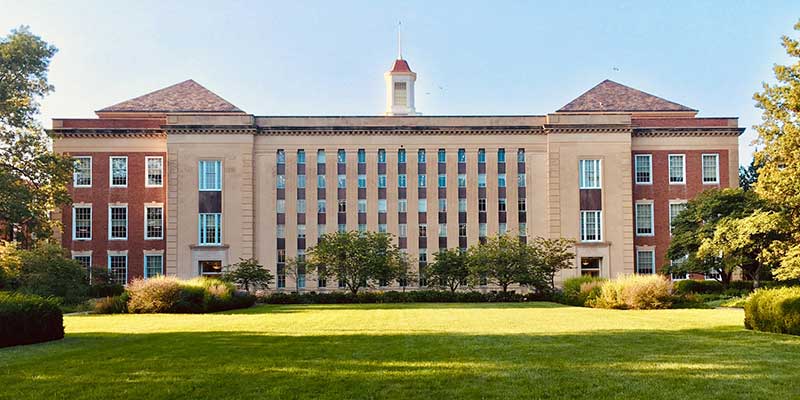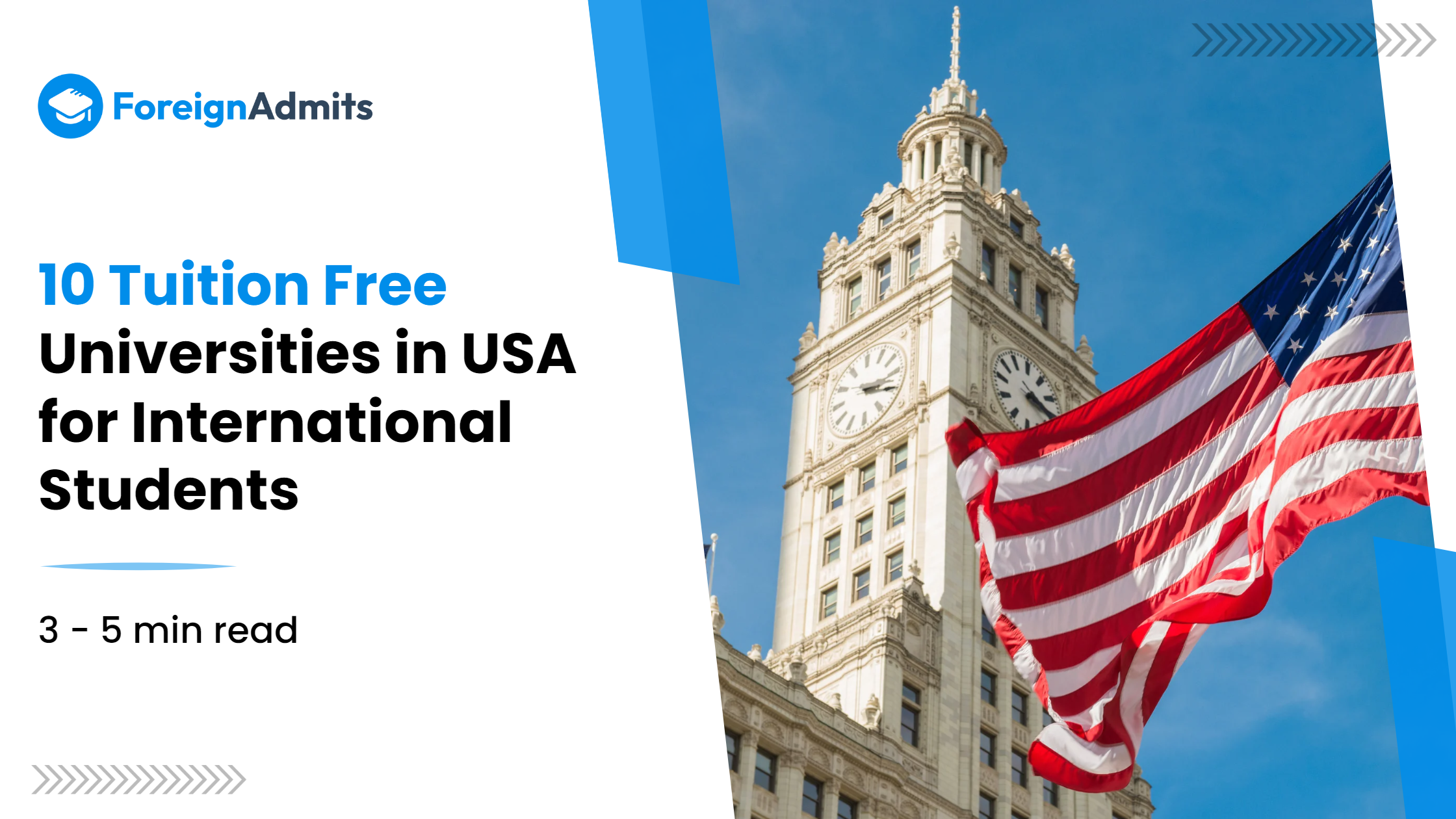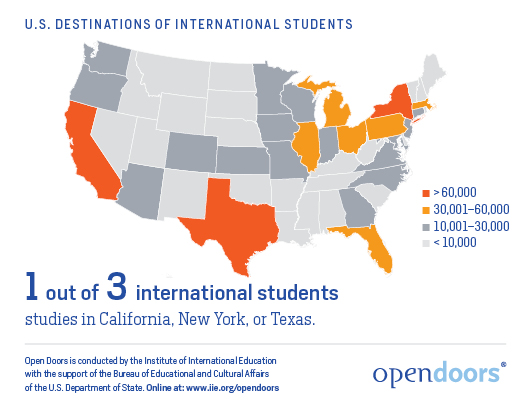Studying in the USA is a dream for many international students. The country offers diverse opportunities and top-notch education.
Choosing the right university is crucial for your future. The USA has many undergraduate universities ideal for international students. These institutions provide a supportive environment for learners from around the globe. They focus on academic excellence and personal growth. American universities are known for their innovative teaching methods and research opportunities.
They also offer a wide range of programs and extracurricular activities. This helps students gain a well-rounded education. Whether you are interested in engineering, arts, or sciences, you will find a suitable program. Your journey to studying in the USA begins with selecting the right university. Let’s explore what makes these universities a great choice for international students.
Top Universities for international Students
Studying in the USA is a dream for many international students. The country offers a wide range of undergraduate universities. Each university has unique features and benefits. This guide explores some of the top universities for international students in the USA. It includes information on Ivy League Schools and Public Research Universities.
You May Also Like:

Table of Contents
Ivy League Schools
Ivy League Schools are famous for their high academic standards. These schools also have a rich history and prestigious reputation. They attract students from all over the world.
Some of the most well-known Ivy League Schools include:
- Harvard University: Located in Cambridge, Massachusetts. It is the oldest university in the USA.
- Yale University: Found in New Haven, Connecticut. Known for its strong liberal arts program.
- Princeton University: Situated in Princeton, New Jersey. Famous for its beautiful campus and strong engineering programs.
- Columbia University: Located in New York City. Known for its journalism school and diverse student body.
Ivy League Schools offer numerous benefits for international students. These include:
- High-quality education: These schools have top-notch professors and resources.
- Networking opportunities: Meeting people from different backgrounds can help in future careers.
- Financial aid: Many Ivy League Schools offer scholarships and financial aid to international students.
Public Research Universities
Public Research Universities are also popular among international students. These universities focus on research and innovation. They offer a wide range of programs and opportunities.
Some notable Public Research Universities include:
- University of California, Berkeley: Located in Berkeley, California. Known for its strong engineering and computer science programs.
- University of Michigan: Found in Ann Arbor, Michigan. Famous for its business and medical programs.
- University of Texas at Austin: Situated in Austin, Texas. Known for its diverse student body and strong liberal arts programs.
- University of Washington: Located in Seattle, Washington. Famous for its research in health sciences and technology.
Public Research Universities offer various advantages, such as:
- Lower tuition fees: These universities often have lower tuition fees compared to private schools.
- Large campuses: These universities have large campuses with many facilities and resources.
- Research opportunities: Students can participate in cutting-edge research projects.
Choosing a university in the USA can be a life-changing decision. Ivy League Schools and Public Research Universities both offer unique advantages. International students can find a university that fits their needs and goals.
Application Process
Studying in the USA is a dream for many international students. The country has many top-ranked undergraduate universities that offer quality education. The application process can be complex, but knowing the steps can make it easier. This guide will help you understand the eligibility criteria and required documents for applying to US universities.
Eligibility Criteria
To apply to undergraduate universities in the USA, international students must meet certain criteria. This includes academic qualifications, language proficiency, and sometimes specific test scores.
Common eligibility criteria include:
- Completion of secondary education or high school.
- Good academic standing with a high GPA.
- Proof of English proficiency through tests like TOEFL or IELTS.
Some universities may have additional requirements. These can include:
- SAT or ACT test scores.
- Letters of recommendation from teachers.
- Personal statement or essay.
It’s important to check the specific requirements of each university. Different schools may have different standards. Meeting these criteria is the first step in the application process.
Required Documents
Gathering the necessary documents is a crucial part of the application process. These documents help universities assess your qualifications and suitability.
Commonly required documents include:
- Completed application form.
- Official transcripts from your high school.
- Proof of English proficiency (TOEFL or IELTS scores).
- SAT or ACT scores, if required.
- Letters of recommendation.
- Personal statement or essay.
Some universities may ask for additional documents:
- Financial statements to prove you can afford tuition and living expenses.
- Copy of your passport.
- Portfolio for art or design programs.
Make sure to prepare these documents well in advance. This ensures a smooth application process. Missing documents can delay your application or lead to rejection. Always double-check the specific requirements of each university.
Cost of Education
Studying in the USA is a dream for many international students. The country offers a wide range of undergraduate programs and universities. But, understanding the cost of education is crucial. This blog will discuss the tuition fees and living expenses for international students in the USA.
Tuition Fees
Tuition fees in the USA can vary greatly. They depend on the type of university and the program. Public universities usually have lower fees than private ones. Here is a brief overview of the average tuition fees:
| Type of University | Average Annual Tuition Fees |
|---|---|
| Public University (in-state) | $10,000 – $20,000 |
| Public University (out-of-state) | $20,000 – $30,000 |
| Private University | $30,000 – $50,000 |
Some programs like medicine or engineering can be more expensive. Scholarships and financial aid can help reduce costs. It’s important to check the specific fees on the university’s website. Many universities offer payment plans to help manage costs.
Living Expenses
Living expenses can also vary widely. They depend on the city and lifestyle. Here are some key components of living expenses:
- Accommodation: $500 – $1,500 per month
- Food: $200 – $400 per month
- Transportation: $50 – $200 per month
- Health Insurance: $500 – $1,000 per year
- Books and Supplies: $500 – $1,000 per year
- Miscellaneous: $200 – $400 per month
Living in big cities like New York or San Francisco can be more expensive. Smaller towns or rural areas are usually cheaper. Sharing accommodation with other students can help save money. Public transportation is often cheaper than owning a car. Many universities offer meal plans that can reduce food costs. It’s important to budget carefully to manage living expenses effectively.

Scholarship Opportunities
Choosing the right university in the USA can be challenging for international students. The cost of education is a major concern. Thankfully, many universities offer various scholarship opportunities. These scholarships help students manage their expenses. This blog post discusses two main types: Merit-Based Scholarships and Need-Based Financial Aid.
Merit-based Scholarships
Merit-Based Scholarships are awarded based on academic achievement. Students with excellent grades or special talents can apply. These scholarships do not depend on financial need.
Some universities with generous merit-based scholarships include:
| University | Scholarship Name | Eligibility |
|---|---|---|
| Harvard University | Harvard Merit Scholarship | Top 10% of class |
| Stanford University | Stanford Academic Excellence Award | 3.75 GPA or higher |
| MIT | MIT Scholars Program | Exceptional STEM skills |
- Reward academic or extracurricular excellence
- Boost your resume
- No need to repay
- Check eligibility criteria
- Prepare your transcripts and recommendation letters
- Submit an application before the deadline
Need-based Financial AID
Need-Based Financial Aid is for students who need financial help. This aid considers your family’s income. It is designed to make education affordable for everyone.
Examples of need-based financial aid programs include:
| University | Financial Aid Program | Eligibility |
|---|---|---|
| Yale University | Yale Need-Based Aid | Based on family income |
| Princeton University | Princeton Financial Aid | Income below $65,000 |
| Columbia University | Columbia Financial Aid | Income below $60,000 |
- Helps cover tuition fees
- Includes grants and work-study options
- No need to repay grants
- Complete the FAFSA or CSS Profile
- Submit required financial documents
- Meet the application deadlines
Student Life and Culture
Studying in the USA is a dream for many international students. The country has many universities that offer quality education and vibrant student life. The student life and culture in these universities are diverse and welcoming. Students from around the world come together and create a unique atmosphere. This makes studying in the USA a memorable experience.
Campus Activities
Campus life in the USA is full of fun and educational activities. Universities offer a wide range of clubs and organizations for students. These clubs focus on different interests such as sports, arts, science, and more. Joining a club helps students meet new people and make friends.
Popular campus activities include:
- Sports events like football and basketball games
- Music and arts festivals
- Cultural fairs and food festivals
- Workshops and seminars
- Volunteer opportunities
Participating in these activities helps students relax and enjoy their time at university. It also allows them to learn new skills and explore their interests. Being active on campus improves the overall student experience.
Cultural Exchange Programs
Cultural exchange programs are a big part of student life in the USA. These programs allow students to learn about different cultures and traditions. Universities organize events where students can share their cultures with others. This creates a better understanding and respect for diversity.
Common cultural exchange activities include:
- International student fairs
- Language exchange programs
- Global food nights
- Dance and music performances
- Study abroad programs
These programs help students feel at home, even when they are far away. They also provide opportunities to build connections with people from different backgrounds. Participating in cultural exchange programs enriches the student experience and makes university life more exciting.
VISA Requirements
Choosing the right undergraduate university in the USA is crucial for international students. The process involves several steps, especially concerning visa requirements. Understanding these requirements helps in smooth admission and stay in the USA. This guide covers the essential aspects of the student visa process and maintaining visa status.
Student Visa Process
International students need an F-1 visa to study in the USA. This visa is for those attending an accredited university or college.
Here are the key steps in the student visa process:
- Acceptance by a SEVP-approved school: First, get accepted by a school that is part of the Student and Exchange Visitor Program (SEVP).
- Pay the SEVIS fee: After acceptance, pay the SEVIS I-901 fee. This fee is required to register in the Student and Exchange Visitor Information System (SEVIS).
- Complete the DS-160 form: Fill out the DS-160 form online. This is the application for a non-immigrant visa.
- Schedule a visa interview: Schedule an interview at the U.S. embassy or consulate in your home country.
- Prepare for the interview: Gather necessary documents, including your passport, DS-160 confirmation page, visa fee receipt, photo, and I-20 form provided by your school.
- Attend the visa interview: Be ready to answer questions about your study plans and financial status.
- Receive your visa: If approved, you will receive your visa and can make travel plans to the USA.
It’s important to follow each step carefully to avoid any delays in your application.
Maintaining Visa Status
After obtaining the F-1 visa, it’s essential to maintain your status to avoid any legal issues. Here are some key points to remember:
- Full-time enrollment: Always stay enrolled full-time during your studies. Dropping below full-time can affect your visa status.
- Keep your I-20 form updated: Any changes in your study program, such as major or duration, should be reflected in your I-20 form. Inform your Designated School Official (DSO) about these changes.
- Report address changes: Notify your DSO within 10 days if you change your address.
- Work restrictions: F-1 students can work on-campus up to 20 hours per week. Off-campus work requires special authorization.
- Travel and re-entry: Ensure your visa and I-20 form are valid when traveling outside the USA. Obtain a travel signature from your DSO before leaving.
- Program completion: You must depart the USA within 60 days after completing your program unless you have applied for an extension or change of status.
By following these guidelines, you can maintain your F-1 visa status and enjoy your educational journey in the USA.
Support Services
Studying in the USA is a dream for many international students. The country offers diverse opportunities and top-notch education. But, adjusting to a new environment can be challenging. Support services at universities help students feel at home and succeed academically. This includes the International Student Office and Counseling Services.
You May Also Like:

International Student Office
The International Student Office is a vital resource. It offers a variety of services to help students. These services include:
- Visa and Immigration Support: Guidance on maintaining legal status in the USA.
- Orientation Programs: Helps students understand the campus and local area.
- Cultural Events: Opportunities to meet other international students and share cultures.
Additionally, staff at the office provide one-on-one advising. They help with academic planning and connect students with resources. This office is often the first stop for any questions or concerns.
Overall, the International Student Office ensures students have a smooth transition. It helps them navigate the complexities of living and studying in the USA.
Counseling Services
Counseling Services are crucial for maintaining mental health. Many universities offer free or low-cost counseling to students. These services include:
- Individual Counseling: One-on-one sessions with a licensed counselor.
- Group Counseling: Group sessions for shared experiences and support.
- Workshops: Sessions on stress management, time management, and other skills.
Counselors help students deal with homesickness, anxiety, and depression. They also provide tools to manage stress and balance life and studies.
Access to Counseling Services ensures students have the support they need. It helps them stay focused on their academic and personal goals.
Post-graduation Opportunities
Studying in the USA is a dream for many international students. The country offers excellent undergraduate programs. The universities provide great education, diverse cultures, and vibrant campus life. Post-graduation opportunities are also plentiful. This makes the USA an attractive choice for students worldwide.
Work Authorization
International students often seek work opportunities after graduation. In the USA, two popular options are Optional Practical Training (OPT) and Curricular Practical Training (CPT). These programs allow students to gain work experience related to their studies.
Optional Practical Training (OPT): This program permits students to work for up to 12 months. STEM graduates can extend this period by an additional 24 months. OPT can be used before or after graduation.
Curricular Practical Training (CPT): This program allows students to work during their studies. Students can take part in internships, cooperative education, or practicums. CPT must be related to the student’s major and be part of the curriculum.
Here is a quick comparison of OPT and CPT:
| Aspect | OPT | CPT |
|---|---|---|
| Eligibility | After one academic year | After one academic year |
| Duration | 12 months (36 for STEM) | Depends on the curriculum |
| Work Type | Full-time or part-time | Full-time or part-time |
| Application | Requires USCIS approval | Requires DSO approval |
Alumni Networks
Alumni networks are vital for career growth. They connect graduates with other professionals. This network can help in job searches, mentorship, and career advice. Many universities in the USA have strong alumni networks.
Benefits of Alumni Networks:
- Job Opportunities: Alumni can share job openings and referrals.
- Mentorship: Experienced alumni can guide recent graduates.
- Networking Events: Universities often host events to connect alumni.
- Career Services: Some universities offer career services through alumni networks.
Examples of Strong Alumni Networks:
- Harvard University
- Stanford University
- Massachusetts Institute of Technology (MIT)
- University of California, Berkeley
Having a robust alumni network can be a game-changer. It opens doors to numerous opportunities. Choosing a university with a strong alumni network is beneficial for international students.
Conclusion
Choosing the right university in the USA is crucial for international students. Many options exist, each offering unique benefits. Research thoroughly to find the best fit for your needs. Consider factors like tuition, location, and available support services. A good decision can greatly impact your academic and personal growth.
Start planning early and reach out to current students or alumni for advice. Your future in the USA awaits. Best of luck on your educational journey!